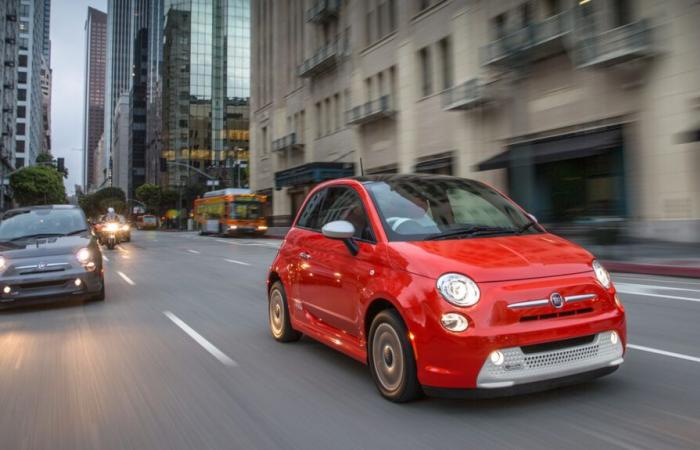Electric car news
The Italian automotive industry faces a major challenge. The government of Giorgia Meloni has just announced a drastic reduction in funds allocated to the sector, jeopardizing the transition to electric vehicles in the country. This decision, motivated by budgetary imperatives, raises many questions about the future of green mobility in Italy.
An unprecedented budget cut
Italian Economy Minister Giancarlo Giorgetti unveiled a plan that plans to reallocate 4.6 billion euros initially intended for the automotive industry towards other sectors. This sum represents a significant part of the 5.8 billion euros planned for the period 2025-2030.
This decision is a real earthquake for the Italian automotive sector. In 2022, the government had promised support of 8.7 billion euros until 2030 to help the industry face the challenges of the energy transition. The announced reduction calls this strategy into question and risks considerably slowing down the development of electric cars in the country.
The consequences for industry and consumers
If the project is validated by Parliament, the funds available for purchasing incentives and aid to the automobile industry will be reduced to 200 million euros per year between 2025 and 2030. This is a dizzying drop compared to the 762 million euros planned for 2025 and the annual billion euros envisaged from 2026 to 2030.
This reduction will have direct repercussions on Italian consumers. From 2025, it is likely that they will no longer be able to benefit from financial aid for the purchase of electric vehicles. This situation is all the more worrying as Italy is already considered one of the least generous countries in the European Union in terms of incentives for electricity.
For industry, the consequences could be just as severe:
- Slowdown in investment in new technologies
- Risk of loss of competitiveness compared to foreign manufacturers
- Possible impact on employment in the automotive sector
Is the green transition compromised?
This decision raises concerns about Italy’s ability to achieve its ecological transition objectives. Without financial incentives, sales of electric cars are likely to stagnate or even decline.
The Minister of Industry, Adolfo Urso, tries to reassure by promising to “ensure that the automotive supply chain has the necessary tools to meet the challenge of the green transition”. He affirms that resources will be concentrated on investments in production, particularly in the field of components, considered the strong point of Italian industry.
However, these declarations struggle to convince players in the sector. Without strong support for the purchase of electric vehicles, it will be difficult to create sufficient demand to justify the massive investments needed for the transition.
A challenge for Stellantis and Italian manufacturers
This budget reduction risks accentuating tensions between the Italian government and Stellantis, the group resulting from the merger between PSA and Fiat Chrysler. Carlos Tavares, the CEO of Stellantis, has previously criticized Italy’s lack of support for the electrification of the vehicle fleet.
Italian manufacturers, already behind in the electric race compared to their German or Asian competitors, could see their situation deteriorate further. Without a dynamic internal market, it will be difficult for them to justify massive investments in new technologies.
A debate that goes beyond Italian borders
The Italian government’s decision raises questions that go beyond the country’s borders. It highlights the dilemma faced by many European states: how to finance the ecological transition in a context of budgetary constraints?
Italy is not the only one to revise its ambitions downwards. France also announced a reduction in its aid for the purchase of electric vehicles. The moves come as China and the United States step up efforts to dominate the electric mobility market.
Towards a questioning of the European calendar?
The Italian decision could relaunch the debate on the European timetable for transition to electric cars. The European Union has set the target of 100% sales of new zero-emission vehicles by 2035. But without strong support from member states, this target seems increasingly difficult to achieve.
You may be wondering if this Italian decision could have a domino effect on other European countries. It is certain that many governments will carefully observe the consequences of this budget reduction on the Italian automobile industry and on the sales of electric cars in the country.
Ultimately, the Italian government’s decision illustrates the complexity of the transition to electric mobility. Between budgetary constraints, industrial issues and ecological imperatives, finding the right balance proves to be a major challenge. The future will tell us whether Italy made the right choice or whether this decision will prove to be a major obstacle to its energy transition.
Written by Albert Lecoq
Specialist in electric car buying guides, I am passionate about new technologies and am a strong supporter of the adoption of electric technology and sustainable mobility.
React to the article







